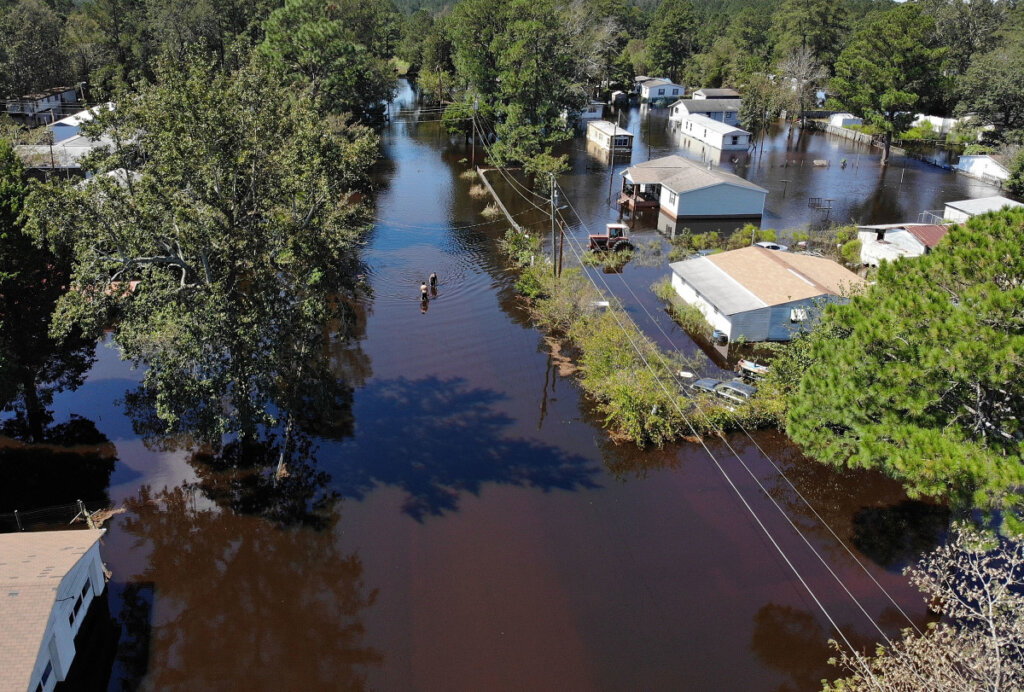
How To Sell A House With Water Damage In North Carolina
Selling a house with water damage in North Carolina can be a headache. There are many factors to consider and questions to ask in this situation. Does the property require professional repairs before selling? Will insurance cover any of the damages? Where did the water damage occur? Dampness and moisture in basements can have different solutions than a leaky roof or burst pipes. We cover all of this and more in this comprehensive guide for North Carolina homeowners.. Keep reading for helpful steps and tips on “how to sell a house with water damage” in North Carolina.
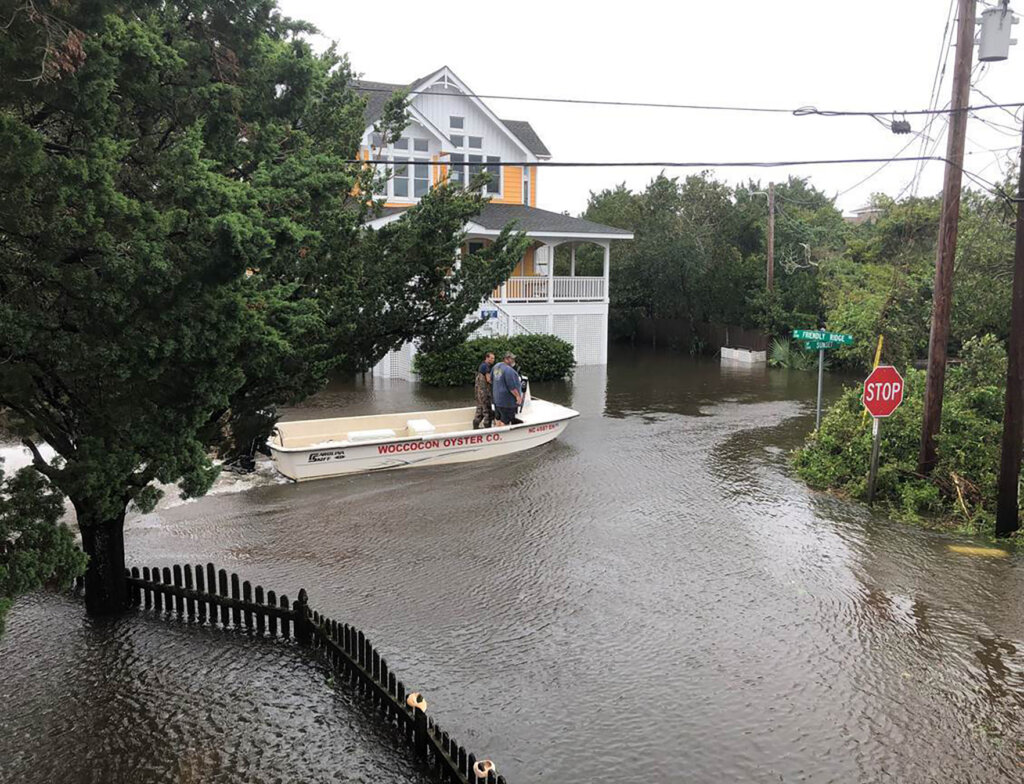
A water damaged property, can be a large source of stress, costing you time and money. North Carolina has over 3000 miles of coastline. According to North Carolina State University, many homeowners lack flood insurance across the United States . In North Carolina, floods are on average the second most common natural hazard. That adds up to billions of dollars in damage every year, across North Carolina. This means many North Carolina residents are susceptible to water damage. If your house has been damaged by water, you’ll likely replace personal things, furniture, and clothing. You will likely file insurance claims, and find a place to live for the near future too.
Water damage can cause significant problems for your entire house in North Carolina too. This includes structural damage, mold growth, electrical problems, rusting, and health issues. Structural and cracked foundation problems will get worse over time. Mold growth can damage the ceiling and walls and cause breathing issues. If mold is growing in your house, it is important to address it as soon as possible. This might mean you have to leave your house for a professional company to clean. Most North Carolina homeowners do not realize that electrical issues can be caused from water damage. If your home was flooded, it is likely electrical outlets and circuits were submerged. This can put your home at risk of fire trouble as well. In this scenario, walls must be opened to locate any faulty electrical components.
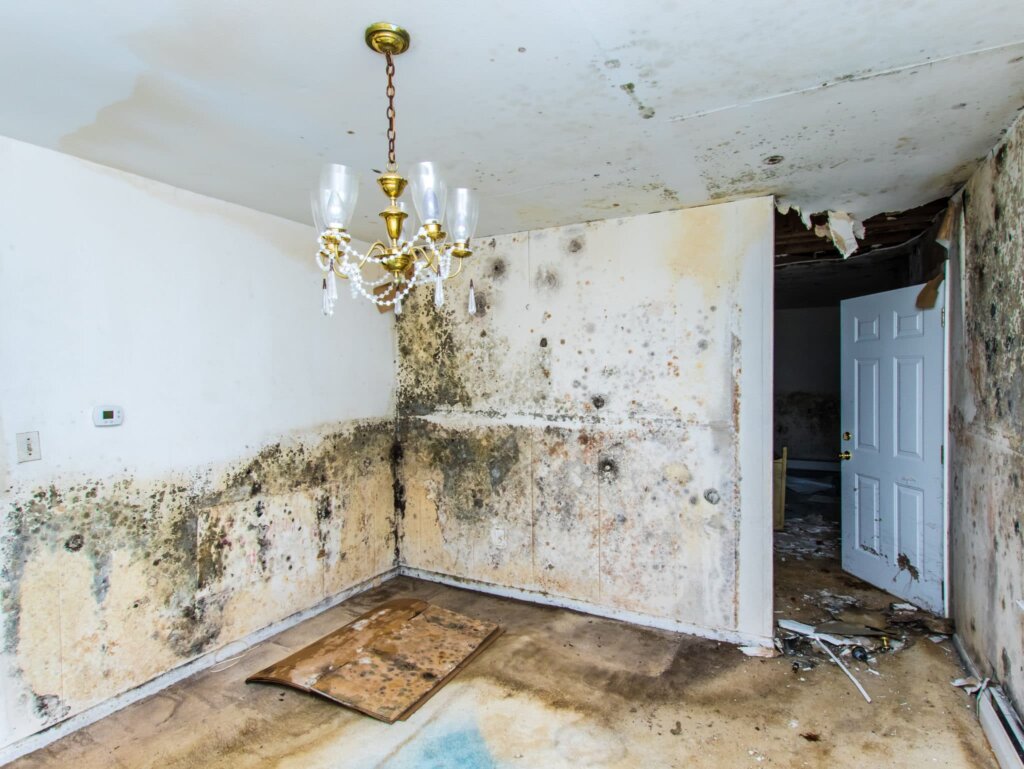
A North Carolina property with water damage can also turn away prospective house buyers. Most people are looking for safe homes in livable condition. If you prefer a fast sale, consider selling to an investor. Real estate investors typically pay cash and can close on your timeline. No matter your decision, with the right plans and solution, it is possible to sell your house and move on in your life.
In this article, we’ve got you covered with the complete guide for how to sell a house with water damage in North Carolina. We will cover what is a damaged house, the risks, and effective solutions to sell your house. There are many options to handle a water damaged house! If you are a seller of a water damaged house, keep reading for tips, more information and resources!
What Is A Water Damaged House?
Homes with water damage have often been impacted by a natural disaster, heavy rains, poor maintenance, or a plumbing issue. A Natural disaster can be flood waters, a hurricane, thunderstorms, snowstorms, or tornadoes. Lack of maintenance at your property can quickly create issues. These include plumbing problems, such as broken pipes, or leaky roofs letting in rain and snow. Frozen pipes can put pressure on your plumbing system, resulting in bursts and water damage after they thaw. A water damaged house is at risk of mold and fungus growth, wood rot, electrical problems too. This often results in a large renovation. Water remediation companies specialize in cleaning up a water damaged house. They can provide guidance on the extent of the damage after they complete their inspection.
Get An Offer Today, Sell In A Matter Of Days…
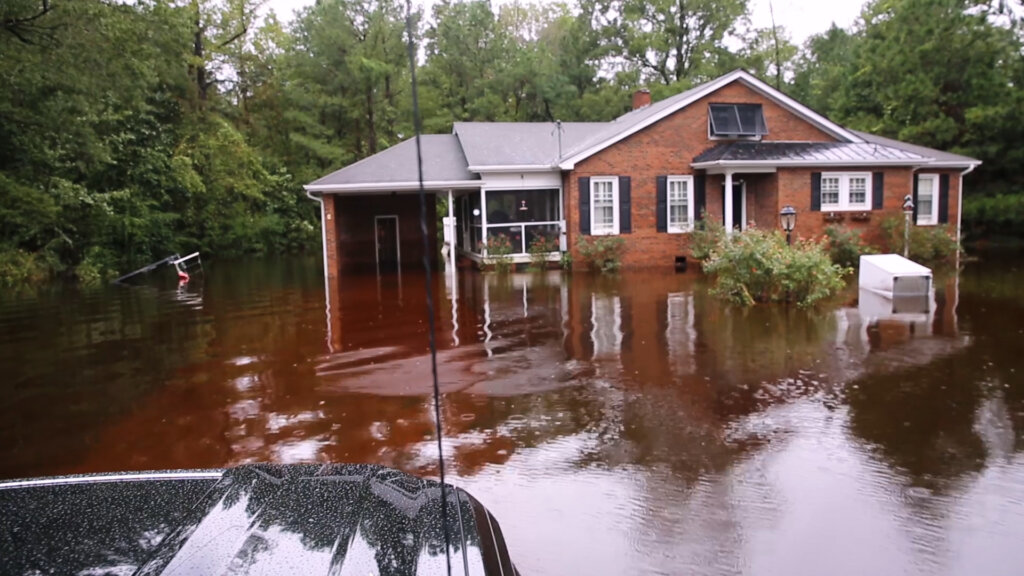
We Buy Flooded Houses In North Carolina
Step 1: Understand the Damage
The first step in selling a house with water damage in North Carolina is to understand the extent of the damage. Your insurance company might need to be involved depending on how bad the damage is. Your North Carolina insurance company may require contractors to evaluate the damage too. A water remediation company and general contractor will likely help. Together, these companies will determine the total cost of the water damage. It is a good idea to let your mortgage company know about the damage as well. If needed, you can request forbearance on a loan to free up money for repairs. This is only advised in emergencies or extreme situations. Do everything you can to avoid missing monthly payments and going into foreclosure.
With insurance, your policy coverage will have specific “perils insured against”. Unfortunately, floods are often not included on standard homeowners insurance policies in North Carolina. This means many North Carolina homeowners do not have flood insurance. This can result in a nightmare surprise if their home is flooded. Unfortunately, the homeowner is on the hook for repairs in that scenario. However, if you have flood insurance or the damage is from another water source, insurance should cover some of the costs. Whether you have coverage or not, arranging all documentation and receipts of repairs and expenses is important. A picture can go a long way in documenting the damage and any repairs. Filing an insurance claim with your agency can be a hassle. While the overall situation might make you stressed, not being fully reimbursed for expenses worsens the experience. Working with the insurance agency and communicating promptly will help speed your claim along.
To understand the damage you will want to know what type of water impacted your North Carolina home. The type of water that caused the damage can be classified into three categories:
Category 1: Clean Water – Damage from this category is due to clean water, such as a broken water supply line or a leaking faucet. A broken pipe, dishwasher, or washing machine is common with this water type. It’s relatively easy to clean and repair if dealt with soon.
Category 2: Grey Water – This water type may contain chemicals, contaminants, or bacteria. This can occur from an appliance failure such as dishwashers or washing machines. This can also be surface water such as rising tides or a flooded river. It can cause health problems and usually requires the house be cleaned by a professional.
Category 3: Black Water – The final type comes from sources that contain sewage or other hazardous materials. This type of water almost always impacts homes during extreme flooding and hurricanes. It can cause severe health hazards and requires professional cleaning and repair.
A professional North Carolina restoration company can evaluate your property and give you an estimate of the repair costs. The contractor can identify any structural damage, mold growth, and other issues that may affect the value of your North Carolina property. It is important to share with the contractor what types of water you think caused the damage.
Step 2: Determine the Value
After assessing the damage, you can determine the value of your North Carolina house. A valuation of your property can be done by a North Carolina real estate agent. To do this, the realtor will conduct a comparative market analysis. They will consider recent nearby sales of comparable homes, the current listings, and your property’s condition. The realtor will also consider the damage to your North Carolina house. Using that information, they can advise you on a reasonable sale price. Once you’ve determined a sale price, your North Carolina realtor will provide a listing agreement and forms to complete.
As you prepare to sell your house in North Carolina, it’s important to have realistic expectations. A house with damage takes longer to sell. A normal real estate transaction in North Carolina can take 60 to 90 days. Selling a water-damaged house could take months or years to sell. You likely won’t sell your house for top dollar, either. You’ll likely negotiate with prospective buyers over the sale price too. At this point, considering a sale to a North Carolina real estate investor can be a good option. Investors often pay cash and can close quickly or on your timeline. If you value speed and certainty, this can be a great option!
Step 3: Disclose the Damage
When selling a house with water damage in North Carolina, honesty is the best policy. You must disclose the damage, any repairs you’ve made, and other specifics about the home. Not disclosing the damage or repairs could be against the law. A local North Carolina real estate attorney can be an asset if your home sustained extensive damage. Being honest about the home’s water damage and other potential issues is always the best route.
If you decide to sell your house on the North Carolina market, your realtor will have you fill out a disclosure form. This will explain the extent of the damage and the repairs made. This form will be part of the sales contract and must be signed by both parties. It’s important to be clear and honest when filling out the form to avoid any confusion or legal issues.
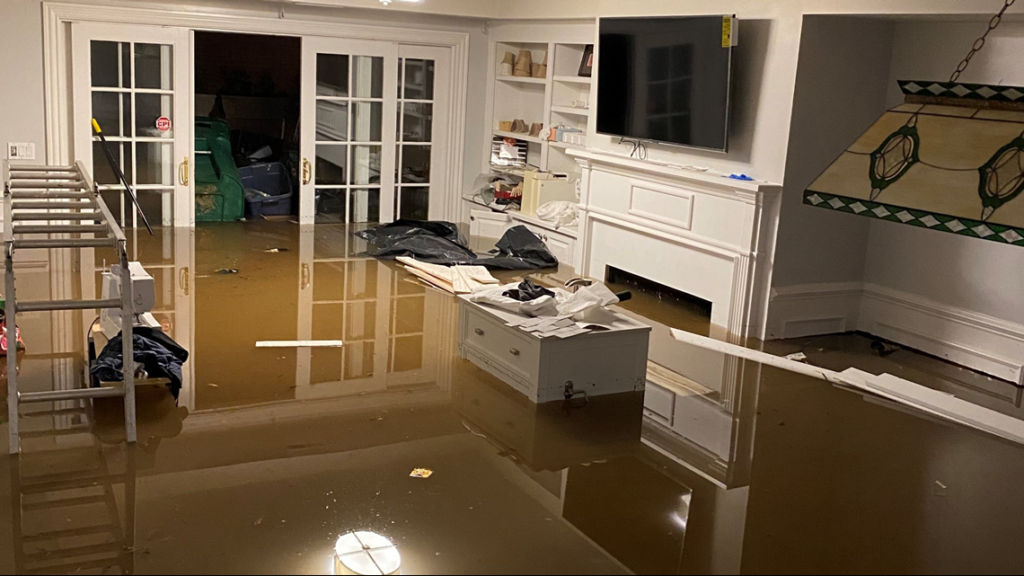
Cash Home Buyers For Flooded North Carolina Homes
Sell Your Flooded House For Cash In North Carolina!
Step 4: Consider Renovations
If you’re looking to sell your house quickly, you may consider an all cash offer from a local North Carolina real estate investor. The benefits of selling to an investor can be certainty, speed to close, and an all cash offer. Most investors do not charge commissions, fees, or any additional expense for buying the home. If you prefer to wash your hands of the entire experience, a real estate investing company could be a great fit! Before signing a listing agreement with any real estate agents, consider the alternate option of selling to an investor.
If you decide to sell the property the traditional way on the North Carolina MLS, you should consider renovating the damaged areas. This will help the property sell faster. This can help attract more buyers and increase the value of your property. Investing more money in a damaged property can be difficult for most North Carolina homeowners. Renovations can be costly, but they may be worth it if they help you sell your house quickly and for a higher price.
For an estimate of repairs, work with licensed home experts. Depending on the repairs, you might need a licensed North Carolina electrician, plumber, or general contractor. Make sure to ask for their North Carolina license and copies of their insurance prior to hiring them for work.
Some common repairs and renovations include:
- Fixing leaks and repairing plumbing
- Removing and replacing damaged drywall and insulation in walls
- Replacing flooring and carpeting
- Cleaning and repairing HVAC systems
- Removing any mold growth
Renovations can make your North Carolina property more attractive to buyers and increase the chances of a quick sale. However, it’s important that the renovations are done to meet local North Carolina, city, and county building codes.
Step 5: Market the Property
Once you’ve disclosed the damage and made any necessary repairs, it’s time to market your property. Listing a house with water damage for sale can be challenging in North Carolina. However, there are several strategies you can use to attract prospective buyers.
First, make sure the property is cleaned and tidy. Remove any personal items and clutter. Making sure the property smells fresh can do wonders too. If you choose not to do renovations, do not try to hide the damaged areas. Sellers should not make the damage the focal point either. However, acknowledge the imperfections and highlight the positives.
If you’ve done renovations, staging the property can complete the look. Staging the property is shown to increase the speed of the sale and price. Staging furniture in each room can help potential buyers see themselves living in the space.
Finally, take high quality photos and videos to showcase your property. Highlight the unique features and amenities of your property. If you have made repairs, you can share before and after photos too.
If you want to sell your house fast in North Carolina, consider an offer from a cash for houses company. You can also ask your realtor if they know any real estate investors. Joining local Facebook North Carolina real estate investing groups could help too. Your realtor might also know of first time homebuyers who are comfortable with a fixer upper.
Step 6: Be Prepared for Negotiations
Selling a house with water damage in North Carolina requires flexibility and patience. Buyers will likely negotiate the price based on the repairs needed. In this scenario, be flexible and prepared to compromise. You can offer incentives such as closing cost credits or home warranties to sweeten the deal.
It’s also essential to be prepared for any potential North Carolina legal issues. Depending on the damage to the home, permits might be needed. Make sure all the necessary documents are in order. Have a North Carolina real estate attorney involved to ensure a smooth and legal transaction.
Conclusion
Selling a house with water damage in North Carolina can be a daunting task, but with the right approach, it’s possible to sell your property quickly and for a fair price. The steps outlined above provide an overview of the process. The first step is understanding the extent of the damage. From there you’ll want to determine the value of your property. Step three is to disclose the damage with your realtor as you prepare for selling. With that information, your realtor may recommend a renovation. Whether repairs are done or not, if you decide to sell, your next step is marketing the property. The final step is preparing for negotiations and be flexible on price. North Carolina buyers can be skeptical of the purchase of a water damaged property.
When selling a house with water damage in North Carolina, it’s important to work with professionals. These North Carolina home experts will guide you through the process. As you consider selling your water damaged home, you will need a team for support. Your North Carolina real estate agent, contractor, and attorney can help you make informed decisions. With the right team and approach, you can successfully sell your North Carolina property and move on to your next adventure!
